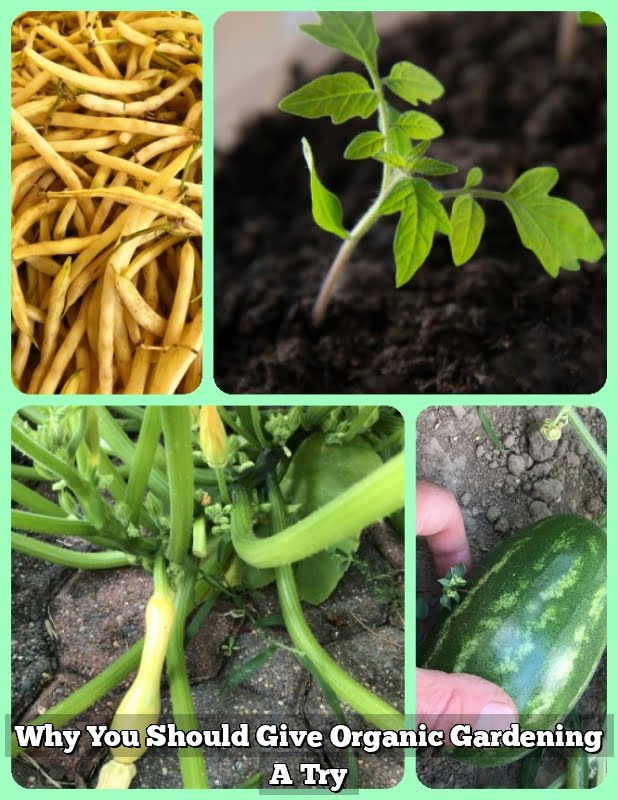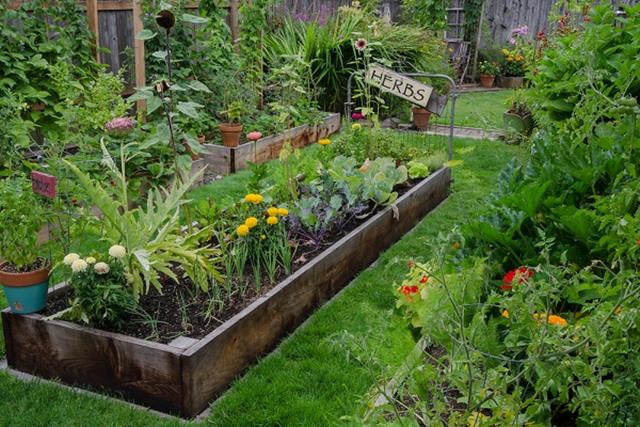Vegetable gardening is a popular and rewarding activity that provides numerous benefits to individuals and communities. In this article, we will explore the various advantages of vegetable gardening, from the health benefits of homegrown produce to its positive environmental impact.
Vegetable gardening, simply put, is the practice of growing vegetables for personal use. Whether it’s in a backyard plot, raised beds, or containers on a balcony, vegetable gardening offers individuals the opportunity to nurture and cultivate their own food. The importance of vegetable gardening lies in its ability to empower individuals to take control of their food sources and contribute to a healthier lifestyle.
What benefits does vegetable gardening give? First and foremost are the health benefits. Homegrown vegetables are packed with essential nutrients and vitamins, offering superior nutritional value compared to store-bought produce. Additionally, the physical activity involved in tending to a garden provides exercise, while the act of gardening itself has been proven to reduce stress levels. Stay tuned as we delve into these benefits further in the subsequent sections.
Aside from health advantages, engaging in vegetable gardening can lead to cost savings. Growing your own produce allows for a comparison between store-bought versus homegrown vegetables, often resulting in significant financial benefits. Furthermore, by growing one’s own vegetables, individuals contribute towards reducing their carbon footprint and promoting sustainability. This not only positively impacts our environment but also local ecosystems as well.
Health Benefits
Vegetable gardening not only provides a sustainable source of fresh produce but also offers numerous health benefits. Homegrown vegetables are known to have higher nutritional value compared to store-bought ones. This is because they are often harvested at peak ripeness, retaining more vitamins and minerals. For example, tomatoes grown in a backyard garden have been found to contain higher levels of lycopene, which is known for its antioxidant properties.
Additionally, vegetable gardening involves physical activity such as digging, planting, and weeding, which can contribute to the recommended daily exercise for adults. Exercising in the garden can help improve cardiovascular health, strengthen muscles, and increase flexibility. Furthermore, spending time outdoors in the sunlight promotes Vitamin D production in the body, which is essential for bone health.
Moreover, engaging in gardening has been linked to stress reduction and mental well-being. The act of tending to plants and observing their growth can be therapeutic and calming for individuals. Studies have shown that being around green spaces and nature can decrease levels of cortisol, the hormone associated with stress. Gardening also provides a sense of accomplishment and pride as one sees their hard work result in the production of fresh and healthy vegetables.
| Benefit | Data |
|---|---|
| Nutritional Value Increase | Homegrown veggies contain more nutrients |
| Physical Exercise | Gardening activities contribute to daily exercise goals |
| Stress Reduction | Gardening has therapeutic effects on mental health |
Cost Savings
When it comes to the cost, vegetable gardening can offer significant savings compared to purchasing produce from the store. Here are some of the ways in which growing your own vegetables can lead to financial benefits:
- Comparison of store-bought vs homegrown vegetables: Homegrown vegetables are not only fresher but also free from pesticides and other chemicals that are commonly used in commercial agriculture. This means that by growing your own produce, you can avoid the extra costs associated with buying organic fruits and vegetables.
- Financial benefits of growing your own produce: Once you have set up your vegetable garden, the ongoing expenses are significantly lower than continuously purchasing fresh produce from the store. The initial investment in seeds, soil, and gardening tools will soon pay off as you begin to harvest your own crops.
Additionally, by reducing the demand for commercially grown vegetables, individuals who garden contribute positively to their local economy by decreasing transportation costs and supporting small-scale farming efforts.
Overall, growng your own vegetables has a positive impact on your wallet as well as on local businesses and suppliers.
Environmental Impact
Vegetable gardening not only provides individuals and families with fresh produce, but it also has a positive impact on the environment. One significant benefit is the reduction of carbon footprint. By growing your own vegetables at home, you are decreasing the need for transportation, packaging, and refrigeration that store-bought vegetables require. This results in lower greenhouse gas emissions and less reliance on fossil fuels for food production and distribution.
Another important aspect of vegetable gardening is its contribution to sustainable gardening practices. Home gardeners have the opportunity to utilize organic and environmentally-friendly methods such as composting, mulching, and natural pest control. By minimizing the use of chemical fertilizers and pesticides, they are promoting soil health, biodiversity, and overall ecosystem balance.
Furthermore, growing your own vegetables can also benefit local ecosystems. By cultivating a diverse range of plants in your garden, you can attract pollinators such as bees and butterflies which play a crucial role in maintaining the health of the surrounding ecosystem. Additionally, vegetable gardens can serve as habitats for various beneficial insects, birds, and small mammals. Overall, vegetable gardening provides an opportunity to make a positive impact on the environment right in your own backyard.
| Environmental Benefits | Data |
|---|---|
| Reduction of carbon footprint | Decreased greenhouse gas emissions |
| Sustainable gardening practices | Utilization of organic methods |
| Benefits for local ecosystems | Promotion of biodiversity |
Mental Well-Being
Therapeutic Effects of Gardening
Engaging in vegetable gardening can have a significant impact on one’s mental well-being. The act of tending to plants and watching them grow can be incredibly therapeutic for individuals dealing with stress, anxiety, or depression. Gardening provides a sense of purpose and accomplishment as individuals witness the fruits of their labor.
Connection to Nature
Spending time in nature has been shown to have numerous psychological benefits. Vegetable gardening allows individuals to connect with the natural world on a deeper level as they nurture and care for their plants. This connection can lead to increased feelings of calmness, contentment, and overall happiness.
Physical Health Benefits
In addition to the mental health benefits, spending time in the garden also provides physical health advantages. The activity involved in maintaining a garden, such as digging, planting, weeding, and harvesting, provides an opportunity for light exercise. This physical movement can contribute to improved physical well-being and overall quality of life.
Overall, vegetable gardening offers a holistic approach to mental well-being by providing individuals with an outlet for self-expression, creativity, and relaxation while connecting them with nature and promoting physical health.
Community Building
Vegetable gardening not only provides individuals with a host of benefits, but it also has the power to bring communities together. By sharing produce with neighbors, individuals can foster a sense of camaraderie and cooperation. Collaborative gardening projects also allow community members to come together in a shared space, working towards a common goal. Here are some ways in which vegetable gardening contributes to community building:
- Sharing produce with neighbors: When gardeners have an abundance of vegetables, they often share their surplus with friends and neighbors. This act of kindness not only promotes community spirit, but it also reduces food waste and provides healthy, homegrown produce to those who may not have the means or space to garden themselves.
- Collaborative gardening projects: Community gardens or shared gardening spaces offer people the opportunity to work alongside their neighbors in cultivating a green space. These projects not only beautify the neighborhood but also provide a valuable meeting place for residents. In addition, they can help build relationships and connections between people from all walks of life.
- Support networks: Vegetable gardening can lead to the formation of support networks within communities. Gardeners often exchange tips, advice, and resources with one another, as well as provide encouragement during both the triumphs and challenges of tending to their gardens. This type of mutual aid fosters goodwill and strengthens social bonds within the community.
Overall, vegetable gardening has the potential to build stronger and more connected communities by encouraging sharing, collaboration, and support among its participants. Whether through sharing produce with neighbors or working on collaborative projects, this activity can contribute to creating a sense of belonging and unity within neighborhoods.
Educational Opportunities
Learning About Plant Life Cycles
Vegetable gardening provides an excellent opportunity for individuals to learn about the life cycles of plants. From planting seeds to harvesting vegetables, participants in vegetable gardening can observe and study firsthand how plants grow and develop. This hands-on experience allows gardeners to understand the different stages of a plant’s life cycle, from germination to maturity. Observing these processes can also foster an appreciation for the natural world and enhance one’s connection to the environment.
Teaching Children About Where Food Comes From
Involving children in vegetable gardening can be a valuable educational experience. It presents an opportunity to teach them about where their food comes from and how it is produced. By participating in planting, watering, and nurturing vegetable plants, children gain a deeper understanding of the time and effort required to grow food.
They also acquire knowledge about the importance of healthy eating habits and sustainable food practices. Ultimately, involving children in gardening activities can instill important life skills and values that they can carry with them into adulthood.
Encouraging Lifelong Learning
Vegetable gardening offers continuous opportunities for learning and discovery. Whether it involves experimenting with new plant varieties, implementing environmentally-friendly growing techniques, or conducting research on soil composition, individuals engaged in vegetable gardening are constantly presented with opportunities to expand their knowledge base. This ongoing learning process contributes to personal growth and development while enhancing one’s understanding of ecological systems and agricultural practices.
Conclusion
In conclusion, vegetable gardening offers a multitude of benefits that extend beyond just having access to fresh produce. The health benefits alone, from the nutritional value of homegrown vegetables to the physical exercise and stress reduction that comes from tending to a garden, make it an attractive hobby for many. Additionally, the potential cost savings from growing your own produce cannot be understated, especially when considering the rising prices of quality vegetables in stores.
Furthermore, the environmental impact of vegetable gardening should not be overlooked. By reducing our carbon footprint and contributing to sustainable gardening practices, individuals can make a positive impact on their local ecosystems. The mental well-being derived from gardening and the sense of community that often arises from sharing produce with neighbors or participating in collaborative projects also play a significant role in promoting overall wellness.
Ultimately, the benefits of vegetable gardening are far-reaching and encompass various aspects of our lives. As such, this article encourages readers to consider starting their own garden as a way to not only enjoy delicious and nutritious food but also to contribute positively to their health, the environment, and their communities. Whether you have a green thumb or are new to gardening, everyone can find something to appreciate in cultivating their own vegetables.
Frequently Asked Questions
What Are the Benefits of Growing a Vegetable Garden?
Growing a vegetable garden has numerous benefits, such as providing access to fresh, organic produce, reducing grocery expenses, and promoting a healthy lifestyle through physical activity and nutritious eating. Additionally, it offers the satisfaction of self-sufficiency and the joy of watching something grow from seed to harvest.
What Is the Advantage of Growing Those Vegetables?
The advantage of growing vegetables lies in their nutritional value and flavor. Homegrown vegetables are often more flavorful and nutrient-dense compared to store-bought ones. By growing your own vegetables, you have control over how they are grown and can avoid harmful pesticides or chemicals, resulting in healthier produce for you and your family.
How Does Gardening Benefit the Environment?
Gardening benefits the environment in many ways. It helps to reduce carbon dioxide levels by absorbing it during the process of photosynthesis. Also, it promotes biodiversity by creating habitats for insects and animals.
Furthermore, growing your own produce can reduce the carbon footprint associated with transporting food from distant locations to stores. Overall, gardening contributes to a healthier environment by reducing pollution and promoting sustainability.

If you’re looking to get into vegetable gardening, or are just looking for some tips on how to make your current garden better, then you’ve come to the right place! My name is Ethel and I have been gardening for years. In this blog, I’m going to share with you some of my best tips on how to create a successful vegetable garden.





